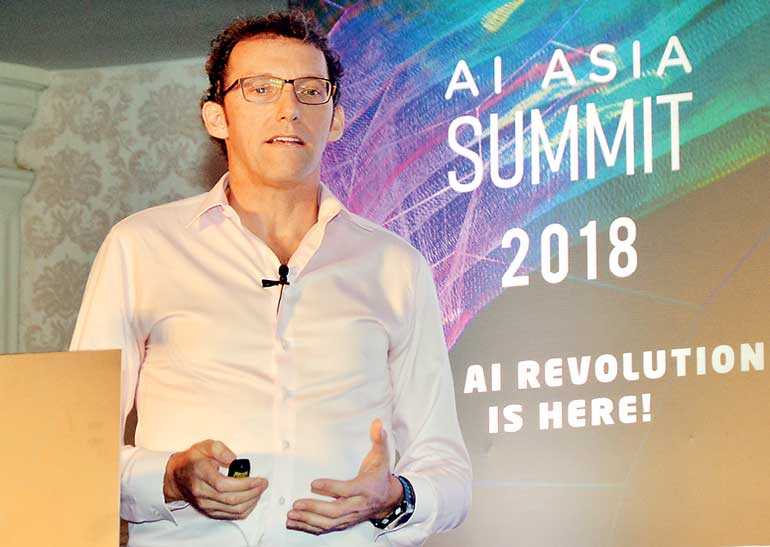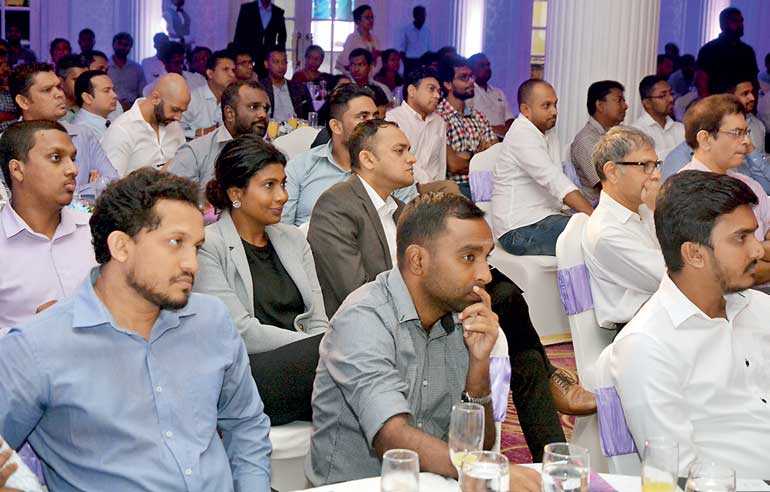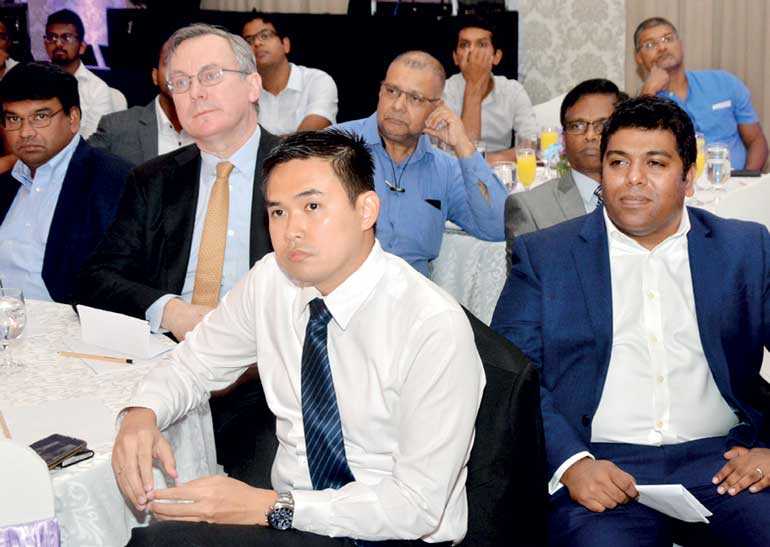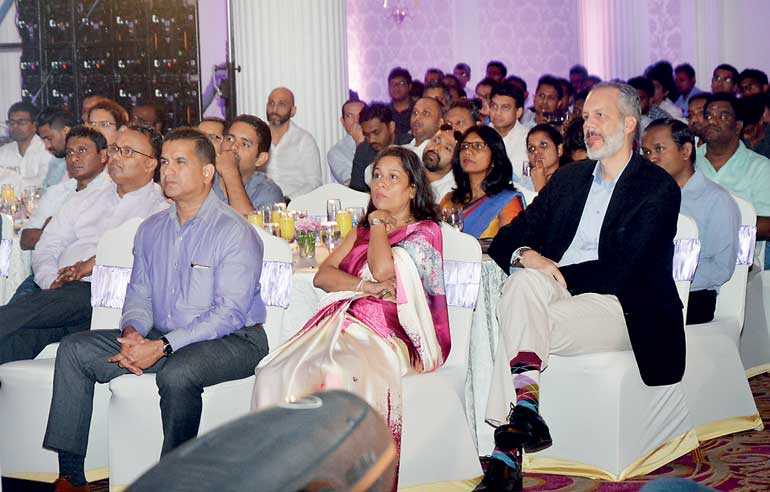Friday Feb 27, 2026
Friday Feb 27, 2026
Monday, 12 November 2018 00:00 - - {{hitsCtrl.values.hits}}

Boutique Data Consultancy Founder and Principal Dr.James Shanahan



By Charumini de Silva
Sri Lanka should pursue in investing on fundamentals of education, research and digital infrastructure to capitaliseon Artificial Intelligence (AI) to revolutionise industries, a top machine learning consultant opined.
Addressing the first-ever ‘AI Asia Summit’ organised by Sri Lanka Association for Software and Services Companies (SLASSCOM) last week, Boutique Data Consultancy Founder and Principal Dr.James Shanahan pointed out that deep learning on AI as baseline would help Sri Lanka chart and embrace machine learning.
“With many organisations already having a lot of data as well as machine learning to a certain extent, I think Sri Lanka should just throw AI into the mix as a baseline.It is also important to invest on research and digital infrastructure,” he added.
Outlining on a plan for machine learning in Sri Lanka, Dr.Shanahan listed out community building, training, recognition and research were key elements that the country should focus in embracing AI to transform the economy.
“It is important to arrange for leadership development focusing to strengthen local research groups and provide funding for higher education, facilitate implementation and play with state-of-the-art algorithms. Also encouraging for publishing in international conferences and journals under world-class supervision by international leaders through locally funded visiting fellowships and online supervision,” he suggested.
Commending the efforts taken by SLASSCOM, Dr.Shanahan noted that AI should be a core strategy of Sri Lanka’s economic policy in going forward. However, stressed that at the Government level decision makers should think about having a chief technology officer (CTO) type of organisation that can guide country forward.
“As of past 18 months a lot of countries are starting to place strategies around AI, while a lots of corporates already have those strategies built into their plans. We hope that Sri Lanka will have a strategy shortly as well,” he added.
Highlighting on what people are focusing on different aspects he underscored scientific research, talent development, skills and education, public and private sector adoption, ethics and inclusion, standards and regulations and data and digital infrastructure pointing out no two strategies are alike to support all of that.
He recommended that a country should at least invest 2% or more of its Gross Domestic Product (GDP) for Research and Development (R&D), highlighting that those economies such as China, the US and South Korea has seen significant progress in its return on investments (ROIs).
“South Korea spends over 4% of the GDP on R&D, while Japan spends over 3.1%, the US over 2.7% and China is fast catching up with 2.1% of the GDP,” he added.
Observing the investment trend and importance given, Dr.Shanahan believes China will surpass the US in R&D funding in 2018.
“By 2030, China plans a core AI industry of $100 billion and $1 trillion in related industries. The plan also lays out the Government’s intention to recruit the world’s best AI talent, strengthen the training of the domestic AI labour force and lead the world in laws, regulations, and ethical norms that promote the development of AI. The latter includes the intent to actively participate and lead the global governance of AI,” he pointed out.
In terms of impacts of AI on an organisations and individuals Dr.Shanahan observes a major shift in workforce. “There is a lot of openings in AI and workforce is going to rapidly change in the next 15 years. With autonomous vehicles coming online Lots of blue collar workers will basically become extinct,” he said.
Further, Dr.Shanahan noted that AI software revenue is expected to increase from $1.38 billion in 2016 to $59.75 billion by 2025 with a compound annual growth rate (CGAR) of 52% during the nine years, while earnings from AI services and AI hardware will be increased to $120 billion (each) respectively in 2025.
“Looking at Sri Lanka’s capacity, I would invest on developing AI type services and be part of the software engineering team,” he quipped.
AI software revenue will be generated through autonomous vehicles, stock trading, consumer/social/image, healthcare, HR, patent, security digitising paper; AI services will generate money via training, integration and Apps and AI hardware will make money from selling GPUs and CPUs.
Accordingly, over 250 private companies using AI algorithms across different verticals have been acquired in 2012-2017 (Q1), with 37 acquisitions taking place in Q1 in 2017 alone. Of that Google acquired 12 companies.
Pix by Upul Abayasekara